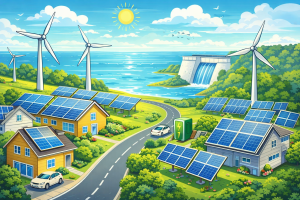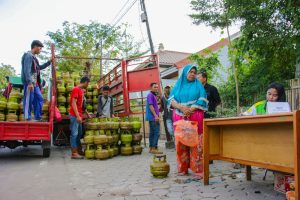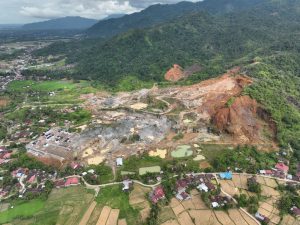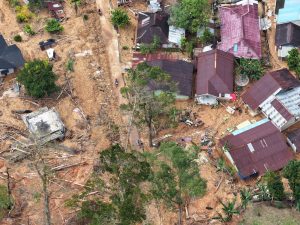Jakarta – A new report from the Center for Research on Energy and Clean Air (CREA) titled “Indonesia’s RUPTL Outlines Faster Growth In Fossil Fuel Use, Downgrades Ambition For Clean Energy” reveals that electricity generation from coal and gas is expected to increase by nearly 40 per cent, from 285 terawatt hours (TWh) in 2024 to 406 TWh in 2034.
The report, released on Thursday, 12 June, and authored by CREA Analyst Katherine Hasan and Lead Analyst Lauri Myllyvirta, states that the deepening reliance on coal and the massive expansion of gas power represent a step back from Indonesia’s energy transition.
The 2025-2034 Electricity Supply Business Plan (RUPTL) prepared by PT PLN (Persero) is indicated to increase Indonesia’s dependence on fossil fuels, particularly coal and natural gas, in national electricity supply over the next decade. This finding has the potential to hinder the pace of the clean energy transition and exacerbate carbon emissions in the power sector.
Furthermore, the latest RUPTL also records a 10 per cent increase in fossil energy use over projections in the previous RUPTL (2021-2030), which projected 367 TWh from coal and gas in 2030.
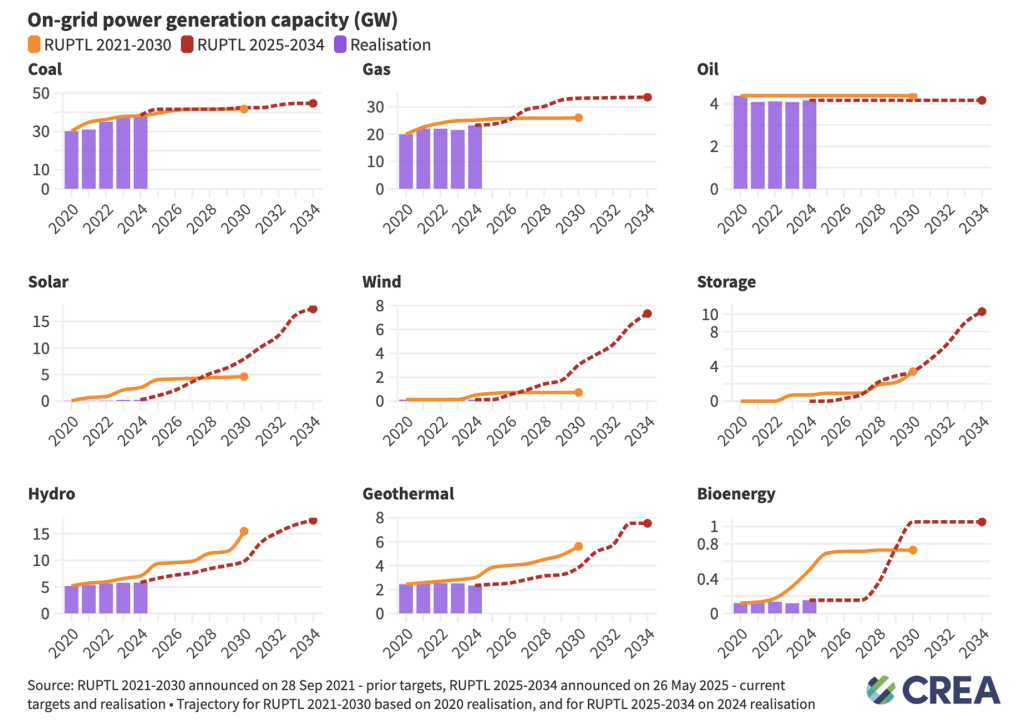
Clean energy ambitions weakened
Despite including additional renewable energy capacity, the 2025-2034 RUPTL shows a slowing trend in its development. The total renewable energy generation capacity targeted until 2030 is 17 GW, lower than the previous target of 20.9 GW for the same period.
The solar and wind development target is also far from the ambition outlined in the Just Energy Transition Partnership (JETP) energy transition investment plan. The RUPTL only targets 10.6 GW of solar and wind energy by 2030, less than half of the JETP’s 24.3 GW target.
CREA said that the latest RUPTL document shows the government’s “serious hesitation” in fully promoting renewable energy. These weak targets undermine Indonesia’s hard-won commitments under the JETP. The projected electricity production from coal and gas contradicts the assumption of gradual reduction set out in the JETP.
In addition to jeopardising the achievement of climate targets, dependence on fossil energy also poses a public health risk. In its analysis, CREA estimates that air pollution from coal-fired power plants (both grid-connected and stand-alone/captive) could cause up to 303,000 cumulative deaths and trigger health costs of USD 210 billion if not phased out immediately.
CREA also criticised the absence of a coal phase-out plan in the RUPTL, including a phase-out schedule for both grid-connected and captive power plants.
The report said that “achieving President Prabowo’s vision for a ‘fossil-free and self-sufficient energy future by 2040’ requires a more aggressive shift in the RUPTL’s immediate-term plans – a clear coal retirement pathway, a robust acceleration of renewable energy deployment, particularly in the critical years of 2025-2029, and last but most importantly, PLN’s accountability in project implementation.”
CREA encourages the renewable energy targets in the RUPTL to be more ambitious and consistent with Indonesia’s climate targets and the pathway of limiting global warming to 1.5°C. According to CREA’s calculations, if all 45 GW of potential clean energy projects were realised, Indonesia would not only exceed the targets in the current RUPTL but could also return to an energy transition pathway aligned with the JETP. (Hartatik)
Banner photo: Image generated by OpenAI’s DALL·E via ChatGPT (2025)


